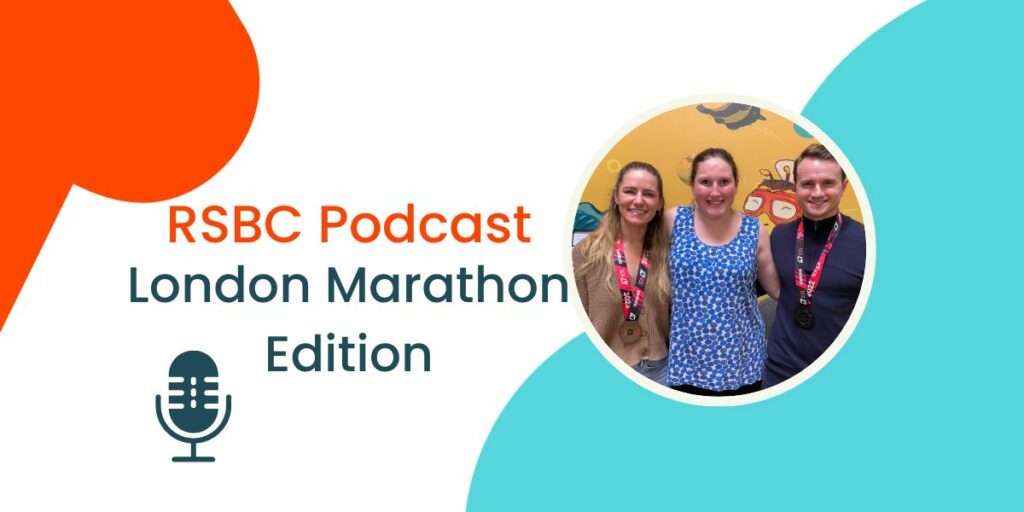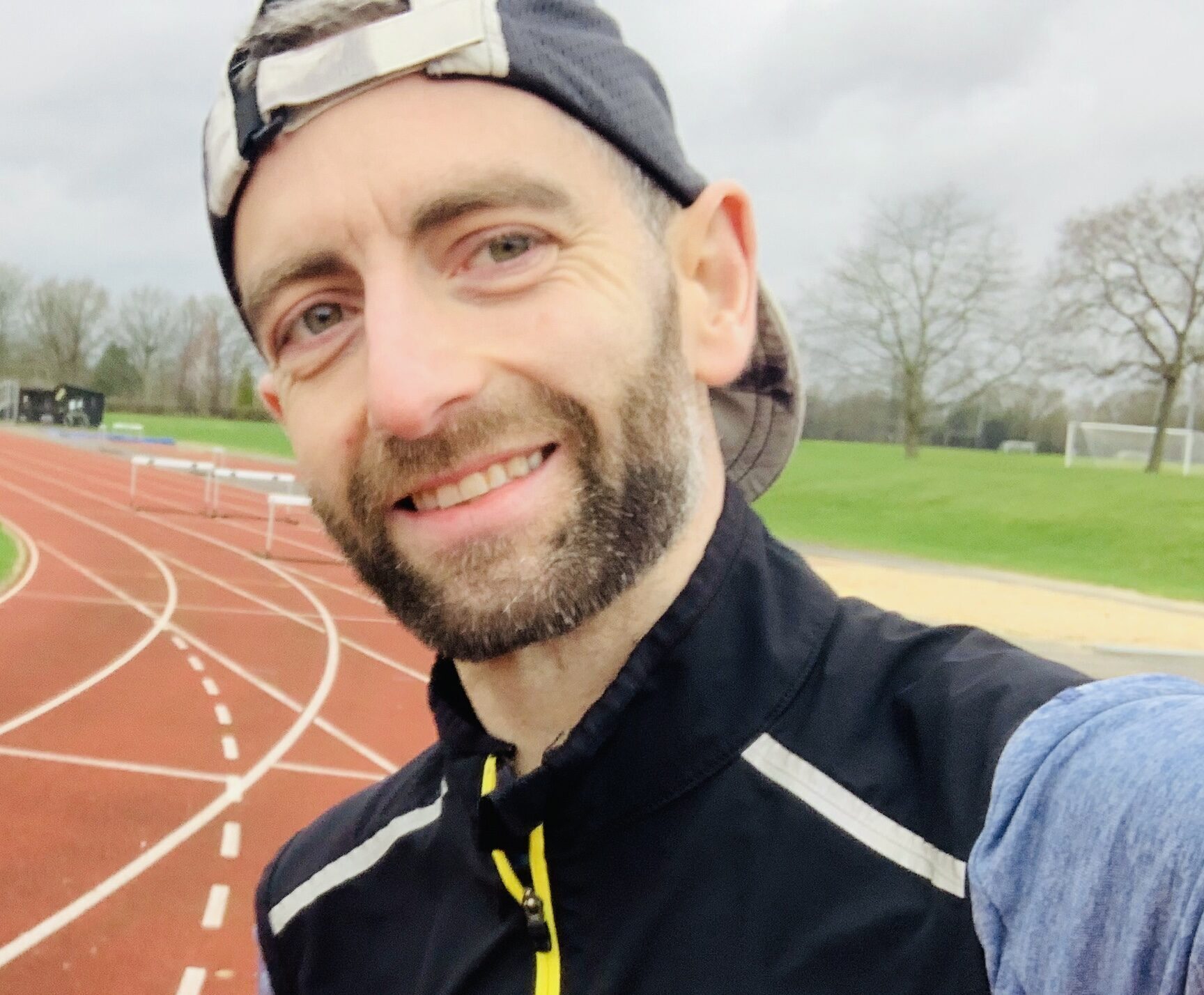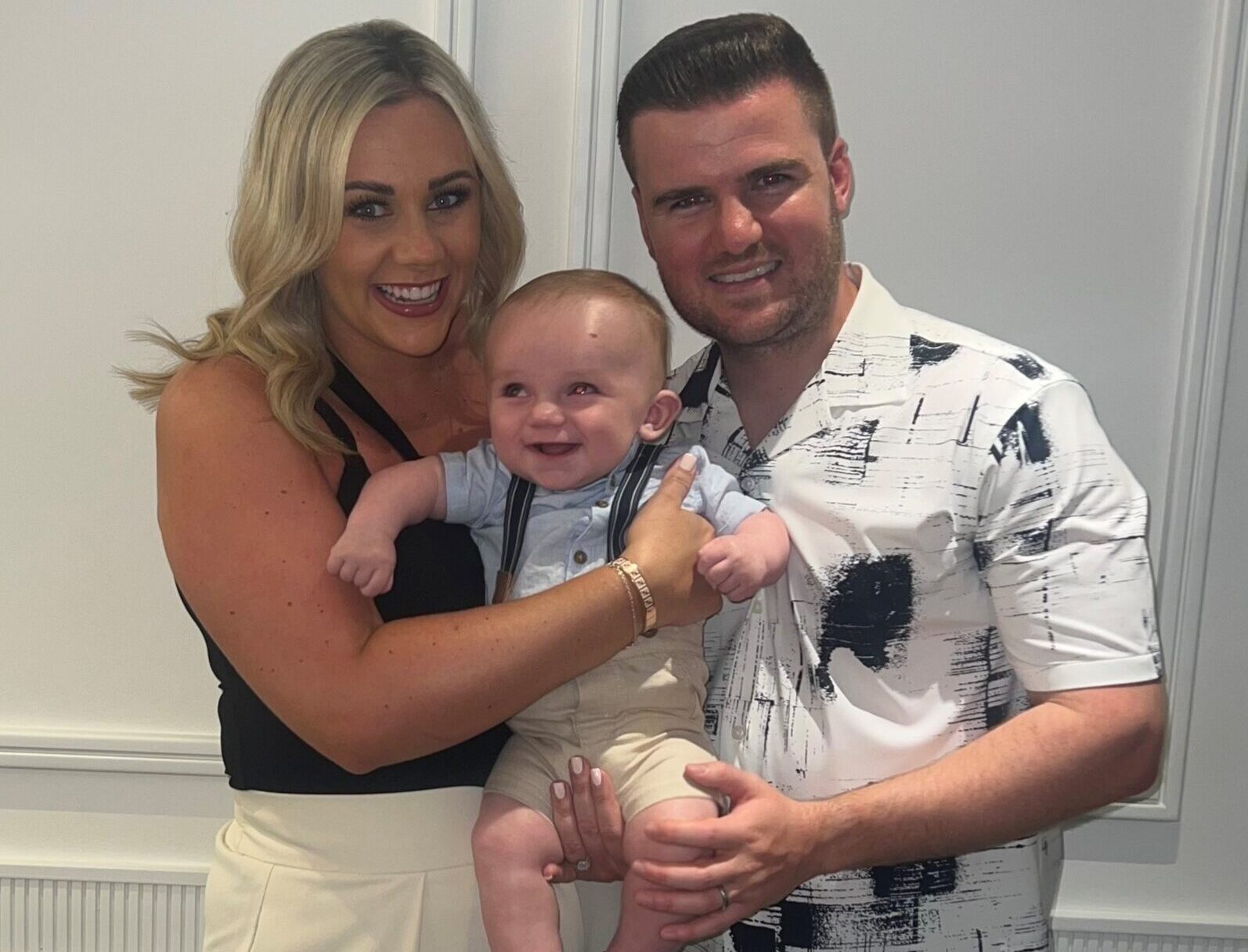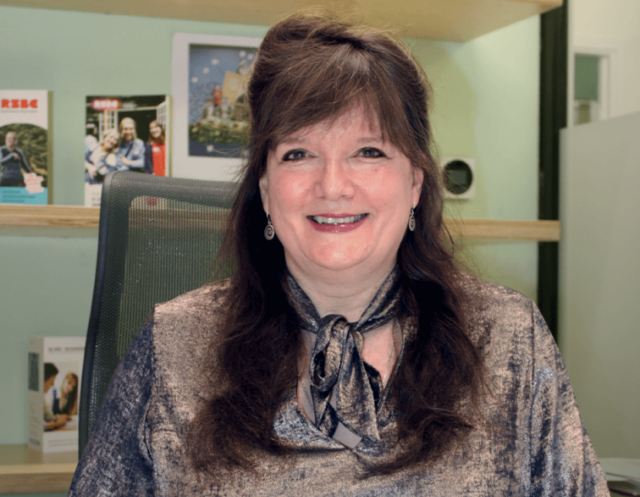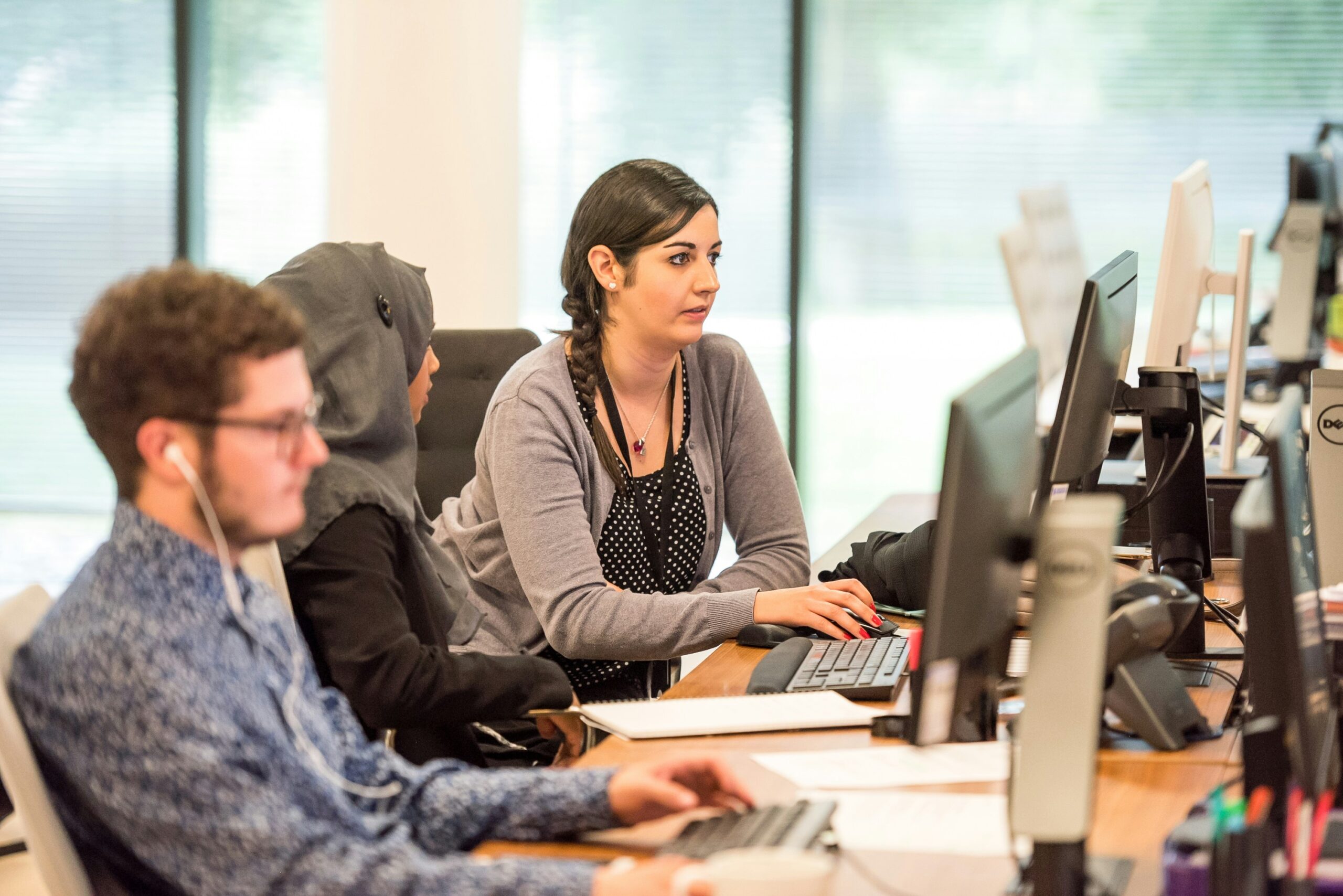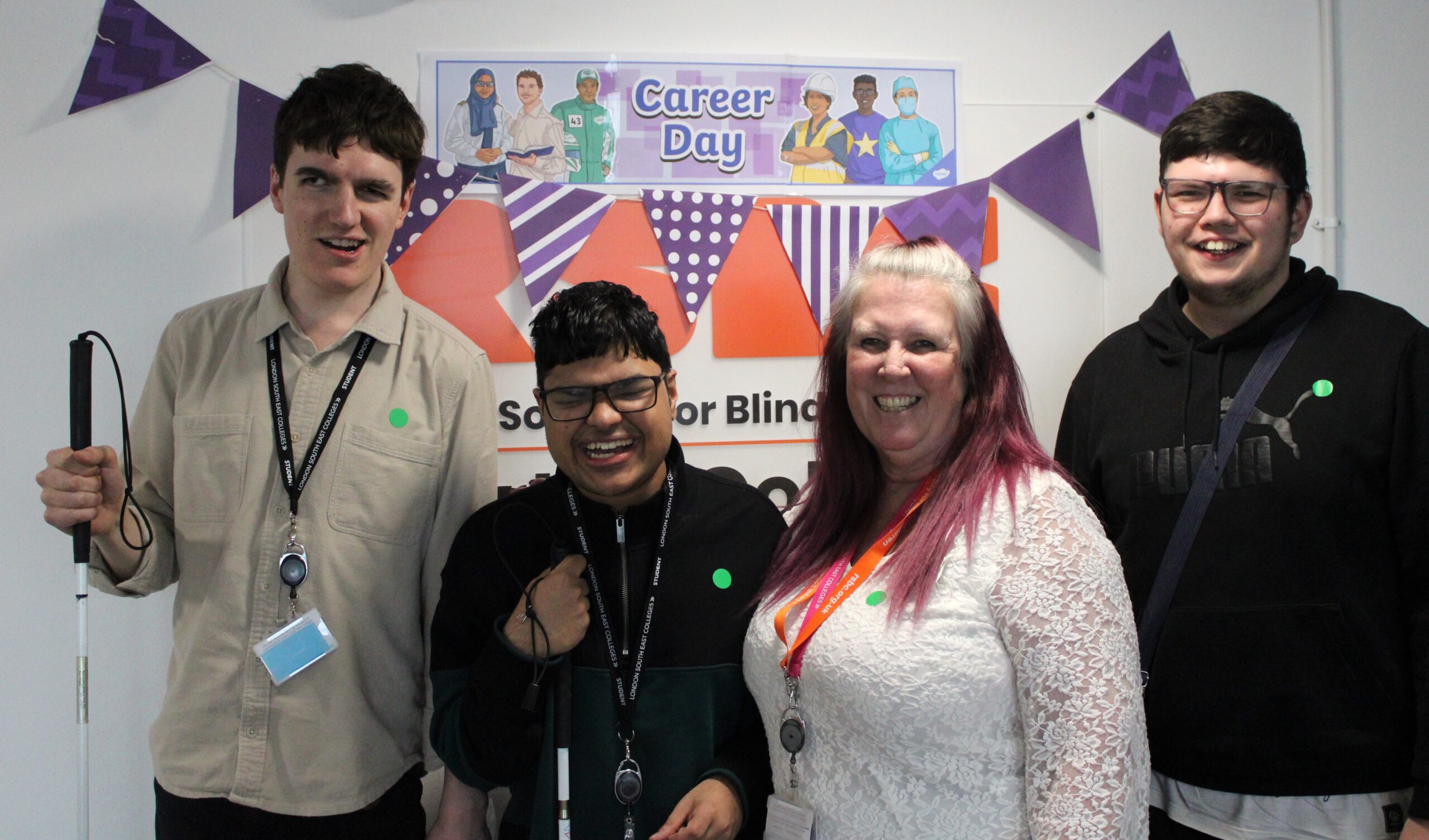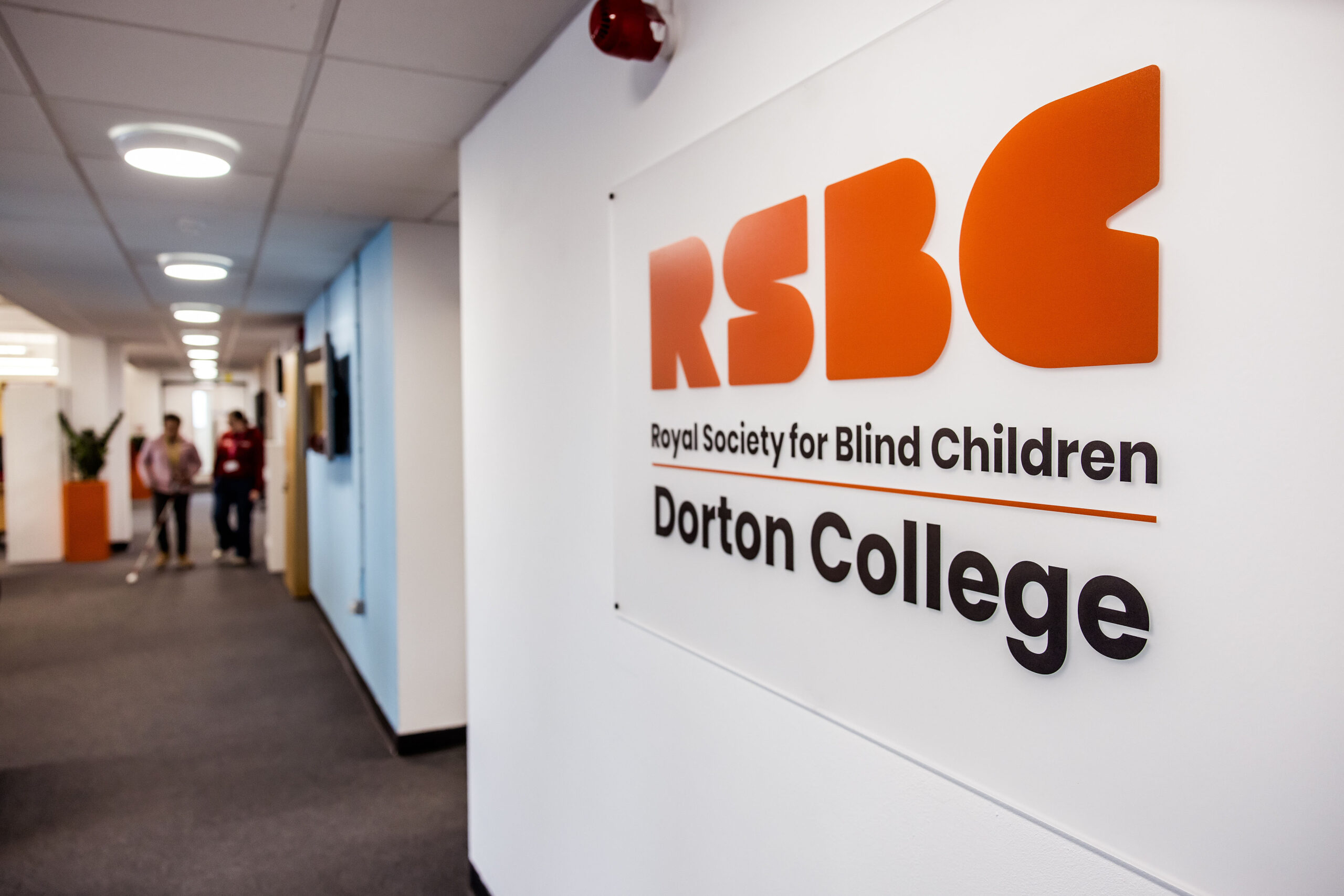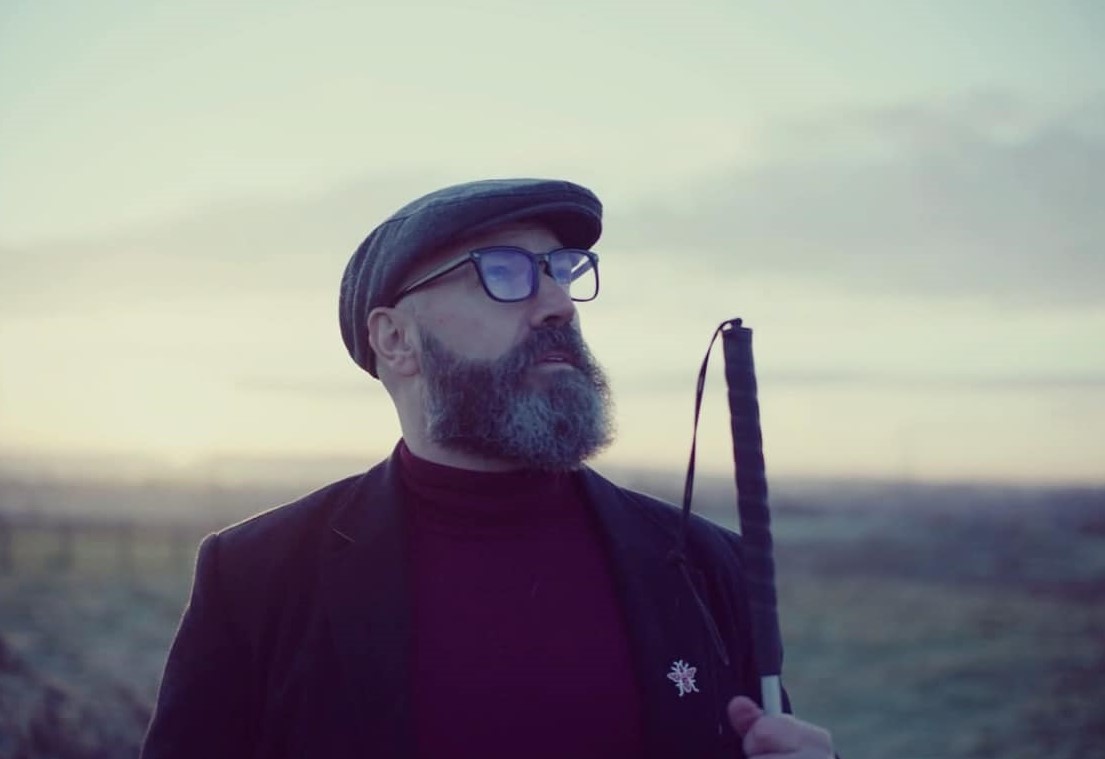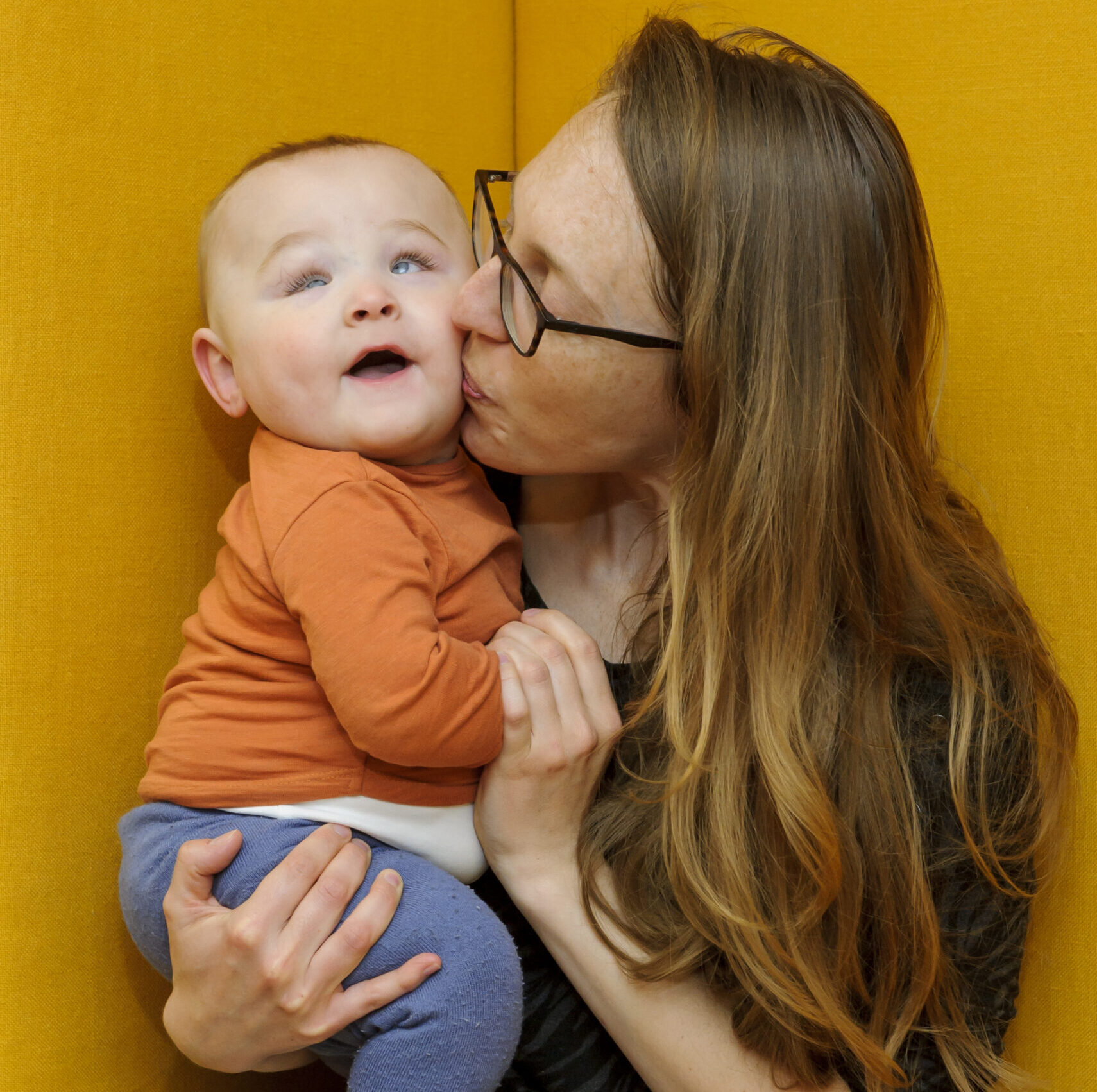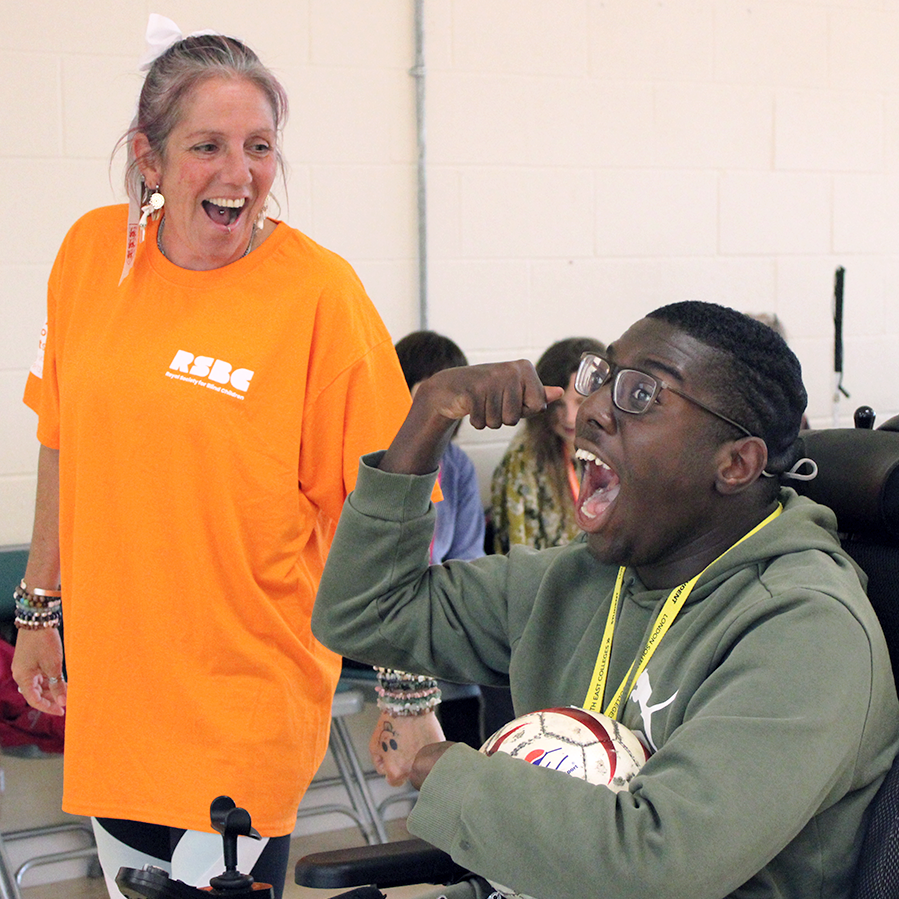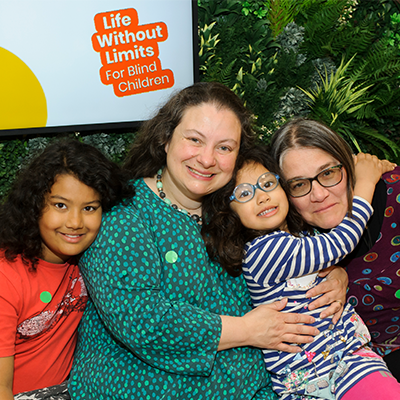Hello, today I’m here with two people who recently ran the London Marathon for the RSBC. We have Catherine. Hello, and my brother Gordon. Hello. So firstly, why did you both decide to run the London Marathon?
For me? I think firstly, it was a challenge that I wanted to do before I was 30. Personally, and then I wanted to run for a good cause as well. That’s when I started researching charities and found RSBC.
I was speaking with a colleague and a friend who found out I was a runner and said, Oh, I’m running for this amazing charity. And it just turned out that not only was it RSBC, but for me personally, my father is a retired eye surgeon.
Me? Yeah, when I was doing my research, I wanted to choose a charity that had a personal connection to me. And, of course, I saw the work that RSBC Were doing helping people like my sister, Kaya, and unfortunately, we hadn’t actually heard about them at the time, but I thought that they would be super helpful for Kaya. But also, they’re doing amazing work helping kids in the transition. I mean, we’ve been through that as a family. Yeah, it was a great charity, I’m really glad that we found them and that I was able to run for them.
Kathryn 1:19
And for myself, as I mentioned previously, and my father is a retired eye surgeon, so a charity that benefits people with a vision impairment was something that, you know, just had a connection to my past and growing up learning more and more about visual impairment from my father’s work.
Kaya 1:39
I think, which is really interesting, like Gordon said, is through Gordon running the London Marathon, he introduced me to the RSBC, which has been fantastic. So, let’s go on to the next question. How did you both plan your training for the marathon?
Kathryn 1:53
I googled the training plan for kind of the like, goal time that I would have thought that I could maybe do I’m already a runner, so I had a head start, but decided that I wanted to really try to apply myself to a training plan to see you’re not only finishing the run, but if I could do it in a in a quicker time.
Gordon 2:13
Yeah, I found a plan as well online, I actually think I downloaded one of the London Marathon ones. And again, tried to aim very optimistically for like a good running time. That’s how I did it. And largely, I wouldn’t say necessarily stuck to it, I sort of ended up just doing two 10 k runs a week and a longer run on the weekend. Whereas a lot of the early-stage training asked you to sort of spend a long period of time just going at a slow pace.
Kaya 2:36
Did you have any help or support from your friends or family during your training at all?
Kathryn 2:42
Constantly. I think marathon training even though running as an individual sport would be very, very challenging if you didn’t have a good community around you. Not only did, you know, friends and family encourage, you know, the training and the fact that I was running the race and running for RSBC. But also, my work was very supportive in this new age of working remotely and have flexible working. I did do speed work so I went to the track in the mornings, I was able to get in different tempo runs or longer runs.
Gordon 3:15
For me, yeah, definitely to shout out or show appreciation to quite a few people. So I mean, firstly, all my friends or family supported me in raising money for the RSBC. So that’s the first thing that was really nice, because again, it was not only are you raising money for charity, which they can do great things with, but you feel like you’re part of something bigger as well. That’s a great motivator for getting through those more gruelling sort of training days. My girlfriend was great as well. She actually did a half marathon with me as part of my training. That was really nice. And then on race day itself. I had a good support team from Kaya, and my dad and my friends as well. So that was that was really nice.
Kaya 3:51
And how did both of you cope with training in the hot summer that we had this year?
Gordon 3:56
One particular day, I think my first long run I booked a, it was a half marathon around the Velodrome in the Olympic Park. It was really hot day and you basically had to do 13 laps of a one mile course and it was like tarmac around the Velodrome part of that was actually really tough one mentally because it was really hot and really monotonous just going around the same track that was quite a tough one.
Kaya 4:17
I can imagine.
Kathryn 4:17
I think I lucked out a little bit I came in a little bit later to the process so those 30 degree plus days that we had I wasn’t yet training for the marathon so that was definitely helpful but yeah with the with the heat that we had across the entire summer I think just trying to get out early. So planning your runs around the temperature and making sure I always had a hydration vest and plenty of electrolytes
Gordon 4:46
Yeah I actually probably wasn’t a sensible is that I actually went running on the hottest day of the year which was a 37 degree one. I found a nice running routes with like a tank at route for me was actually around the charity. I remember crossing people on the bridge people do He’s looking at me like, What? What are you doing? I don’t really know why I did it. But then I sort of felt right at the time. But then afterwards, I just couldn’t cool down. I was just sweating, like the whole evening. It was so hot. That’s not to be advised for not taking that as advice.
Kathryn 5:16
I think there’s something when you’re like running and it’s pouring rain, or it’s really cold and people see you running, you kind of feel like you have this badge of honour but when you’re running in like the insane heat, I don’t think you get that same feeling of being like this really tough person out there.
Kaya 5:32
And during the marathon, did you have any strategies that you use at all and how did they help you
Kathryn 5:38
Strategies, I think not going out too fast, which I did, I had a pace in mind for the time that I wanted to get. I knew early on that the pace that I was running, I wasn’t going to be able to do for the whole time but really tried to run how I felt and just let myself go knowing I would slow down a little bit at the end, but that would probably be okay, because I was faster in the beginning and trying to make sure that I ate every 45 ish minutes and take water at all of the water stops. Oh and that just have fun and high five all the kids.
Gordon 6:11
I had a pace of mind so I was trying to keep to about five minutes k pace, I actually put myself with the three hour runners. So they went off quick. And I was going really quick. I think my first few kilometres was like four minutes 30 So the first half sort of flew by to get up to a half marathon and then I really tried to concentrate on just keeping to my pace taking energy gels about every 30 minutes water as well as same as caffeine. Every stand is trying to Yeah, again, enjoy it. Enjoy the people dressing up in different costumes. I think I was overtaken by a couple of witches. A little banana and Mario, Mario was really quick. Scooby Doo I saw, but I managed to get I managed to pass Scooby Doo at the end.
Kathryn 6:51
It was a minion out there that was remarkably fast as well.
Kaya 6:55
And how did you both cope mentally running the marathon?
Kathryn 6:59
Honestly, it was just a blast. You know, there’s a level of focus that you have to maintain on your pace, how you’re feeling, even if you’re well trained, you can have a bad day. So just making sure you’re always checking in on your body. Other than that, I mean, the crowds at this marathon were just really incredible. And you’re always heading towards a different milestone or you know, a landmark that you get to pass I think running across Tower Bridge was quite incredible. So I think those moments really helped mentally carry you through. The hardest part for me was probably mile seventeen, eighteen, we’d been in Canary Wharf for a couple of miles at that point, and still had a mile or two to go before we were gonna get out. And then you know, you had kind of a long shoot down to the end at St. James Park. Yeah, mentally, you know, I think the crowds really made this one a very enjoyable and easy one to manage from that perspective.
Gordon 7:51
Yeah same for me, the crowds were amazing and great to keep you going. And generally I love the race. There was some difficult bits around the same sort of miles as you were saying, Kathryn, probably for me just after Canary Wharf I saw some of my friends twice in Canary Wharf which was nice. And that was quite tough. But then the crowds were great. I mean, there were sort of different bands the whole way. Every stage people out just cheering for you. Do you have your name and on the vest on your front vest?
Kathryn 8:15
I didn’t know that was a mistake. Okay, next time.
Gordon 8:18
So that helps. That’s nice. Just strangers shouting your name. Of course, seeing the RSBC team at points as well was really great. Yeah, it’s such a good event.
Kathryn 8:27
Either people were just yelling for Henry if there was no name, but either there was someone named Henry running next to me the entire time. So I just want to say it happened so many times I just started taking Henry’s cheers and thinking that they were for me,
Kaya 8:43
I like that. Sounds good to be. And Did either of you hit the wall whilst running the London Marathon. And if either one of you could explain what that means?
Gordon 8:53
Yeah, I think I’d probably hit the wall with about 10k to go. So that’s just when we were coming out of Canary Wharf I think the wall generally is about mile 17 or 18. I probably lasted a little bit longer than that. But then really, my legs were struggling the last sort of eight to 10k. And it was coming, I think psychologically talking about another last question about sort of the mental experience, but the last 10k still felt like a big challenge.
Kathryn 9:14
Were you trying to do like marathon math?
Gordon 9:16
I don’t know. What was that?
Kathryn 9:17
Like where you’re trying to think, Okay, if I have this pace, and I have this much longer if I need to run this to like, you start getting lost in the numbers. And all of a sudden, you can’t do the most basic math to understand like where you are and how much longer you have to run.
Gordon 9:30
I tried to do a little bit. My aim was really to get a low 3:30 I’d be very happy to get anything around that time. And then I knew just at the end, I could get just sub 3: 30
Kathryn 9:39
Yeah, I think the wall happened at the same time for me. Your legs are starting to hurt. I think I could have got a little warm like when we were out towards Canary Wharf and I think while I said that I was going to take water at every station. I didn’t hit every single one. I think I got to a point where I was like, Oh, I’m feeling good. I don’t need it. That’s always a mistake. I think I got a little dehydrated when the when the heat kicked up a bit. near the end, yeah, miles 22 through the end, I have a few friends that saw me at that point. They’re like, Oh, we were yelling, but you didn’t see us and I was in the pain cave. At that point, I had a similar goal go to 3:30 was like my goal pace it while I did hit the wall around mile 21 and 22. Even though my terrible marathon math was making me go a bit dizzy. I that was also the point where I realised that it wasn’t whether or not I was going to hit that goal. But how many minutes I was going to beat it by which it really, really got me through that last bit and kept me from slowing down too much.
Kaya 10:37
Wow, that’s fantastic. And what would be your advice to anyone who’s thinking of running the London Marathon?
Kathryn 10:44
Definitely do it. And you know, everything people say about this race is true, the crowds, the views, I cried a few times. And I’m not a hugely emotional person but you know, coming across Tower Bridge to see eight people deep on either side of that bridge. And then, you know, just looking up and just like the beauty of that structure itself, and then the crowds and it’s truly unlike anything else that I’ve ever experienced. So really, really recommend running this race.
Gordon 11:14
It’s the same really for me, it was it was such an amazing experience the day makes the training completely worth it. You know, for all those moments, when you think that the whole training journey is a tough one day really makes it worth it. And particularly raising money for such a good charity, that means a lot as well and running for a good cause feeling like you’re doing it for something bigger than yourself was also great, I’d highly recommend it. I never really considered myself as a runner. It was just a challenge that I wanted to do for a while. But yeah, it was great to be part of.
Kaya 11:40
Fantastic. So what times to do both and managed to achieve and are you happy with the times you managed to achieve
Kathryn 11:47
Gordon already shared that we both had the goal of sub 3:30 I ended up running a 3:26, which was four minutes faster than my goal time. And I could not be happier or prouder. A lot of work went in a lot of training and I’m really happy and proud of it.
Gordon 12:09
I managed to squeeze in a 3:24 time and again Yeah, I couldn’t have done much better everything sort of went well on the day. I’m really happy with it anything below 3:30 I would have been really happy with
Kathryn 12:19
Even a 3: 26
Gordon 12:21
Yeah, for sure. Yeah, I was I was I was really happy my time I couldn’t have done much better. And I think
Kaya 12:28
Well congratulations to both of you for completing the London Marathon and also managed to get such fantastic times. Thank you so much. Thanks.
Kevin 12:41
Kathryn, having been involved with the RSBC or Team RSBC as I always called it along the way along the journey did you gain a greater understanding of vision impairment and sight loss and the challenges associated with that
Kathryn 12:56
I did one of the best experiences of being on the team was actually coming in and having a tour of the life without limit centre with you. And just learning about the different programmes that you run not only for the visually impaired people that are here, but also their families, Kaya and Gordon have spoken a bit to that it’s really incredible work. And it’s one of the things that makes you think. I’ve been around the business of eye health and the medical side of Ophthalmology my entire life. But the more human side of it really is something that I think I learned more about and gained a different perspective on through becoming involved with RSBC.
Gordon 13:33
Gordon, you would do to run London Marathon in 2020. And then for obvious reasons, the marathon got cancelled and got moved. How did you manage to keep yourself motivated over that length of time? And obviously you you’ve crossed 30 did you?
Gordon 13:49
Yeah, it was it’s been a long journey to the marathon. And that’s why finishing the marathon was particularly special. Since I was sort of waiting to do it for two years in terms of motivation, being completely honest, I can’t say that I continued running after I found out that the 2021 was cancelled. I saved up my motivational energy to give it a good go this year. But of course, sort of stayed in touch with RSBC through Kayas work largely because actually, over those two years, Kaya became much more involved with RSBC So yeah, it was experiencing the charity through her.
Kevin 14:21
Thank you. It was a very long wait indeed.
Kathryn 14:24
Did that make the experience of running for RSBC so much more meaningful for you once you actually ran the marathon because kaya had you found the charity and then she became so involved in it make it more important for you then?
Unknown Speaker 14:39
Yeah, 100% Yeah, I could see first-hand the work that they do and cause been particularly involved with the youth for young people and I’ve seen what amazing positive effects that’s hard on her and you know, given our community and you know, after everything that she’s been through, so yeah, 100% Yeah, I can see the work first hand. Yeah, I can see what they’ve done from the numbers and through speaking to Kevin two years ago. And that’s why I wanted kaya to get involved with the charity. Yeah, seeing that over the last two years and seeing the journey. She’s been on with a charity. Now she’s interviewing me on a podcast. Yeah, it’s amazing
Kaya 15:15
Role Reversal.
Kevin 15:15
So you talked about all that hitting the wall on 17 and 23. That’s why we put our cheer points there that we know you’ll be getting to really start to feel it. How did you feel that moment when you suddenly turned right by the Victoria monument, and there it is in front of you the big red arch with the clock ticking away? And that’s the finish line? What is that? Like? What does it feel like?
Kathryn 15:37
I mean, you can’t see me right now. But I’m smiling so big, it was incredible. I think I started crying at that point, too. Like Gordon said, you’re doing something really challenging. And as I mentioned earlier, running is a very individual sport, even though you’re running the marathon yourself, you’re running for a really important cause for RSBC. So you kind of feel like if that entire organisation is there with you as you’re crossing the finish line, but yeah, I mean, I crossed the finish line, and the girl that finished right next to me, like, you know, like, just immediately, like, gave me a hug. Like, it was just such a really, you know, an incredible feeling. And this the excitement was palpable.
Gordon 16:15
Yeah, and I guess a mixture of relief and, and pure happiness. I think I actually didn’t really see when the finish was. So I was I thought it the end was closer than it was. So then you actually have to Yeah, you do that right turn around. The end was unbelievable, with everyone finishing. And yeah, as Kathryn said, you just hug random strangers. And it feels like everyone recognised that you’ve, you’ve achieved an amazing thing.
Kevin 16:42
Without doubt, a fantastic achievement. And would you recommend running London marathon for RSBC to somebody else?
Kathryn 16:48
Absolutely.
Gordon 16:50
Yeah. So for me wholeheartedly, I couldn’t recommend it more, not only just because of my personal connection to the charity through Kaya, and the work that they do, but also the experience, you know, credit to you, Kevin, you know, you were great at keeping us going and sending us update emails, and again, making us feel part of a team. We had quite a big team. And then was it 40 – 50 people?
Kevin 17:09
Yeah, we had 44. Cross the line
Gordon 17:11
So yeah, it was great to be part of that team. And your update emails definitely were good and kept us going. So yeah, all credit to you as well. I thought it was a fantastic experience.
Kathryn 17:20
Yeah, I completely agree. I would definitely encourage, you know, people running for RSBC. I think, you know, not only as Gordon mentioned, did you really create a sense of like being on a team and belonging, but also the exposure to the charity, the work that you’re doing. And also just everyone that I’ve met through the process, including Kaya and Gordon has just been really incredible. So yeah, I definitely recommend it
Kevin 17:44
Brilliant Thank you very much. Marathon is now back to its traditional month of April in 2023 RSBC will have 65 runners taking on 26.2 miles of London streets. If you would like to fulfil that dream, and be the proud owner of the London Marathon medal in 2024. Please visit our London Marathon page on www.rsbc.org.uk.
